The Great Barrier Island local board chair is defending claims that the board has advocated for public transport and freight subsidies to and from the island, despite a lack of formal evidence supporting such requests.
An investigation by AoteaGBI.news found no record of formal requests for government support for ferry and aircraft services to and from the island for over a decade.
In response to the island’s exclusion within the Regional Land Transport Plan (RLTP) last month, Local Board Chair Izzy Fordham told AoteaGBI.news.
“Over many years, the Local Board, and Community Board’s prior, have advocated and worked with our respective MPs (I can think of Judith Tizard, Nikki Kaye, and Chlöe Swarbrick), all of whom have lobbied for the island, endeavoring to gain some sort of subsidy, but to no avail,”
However, an Official Information Act request from AoteaGBI.news revealed only one formal request made by any local board and that was more than a decade ago.
On May 15, 2014, the then Local Board asked Auckland Transport to “consider airline and ferry services to Great Barrier being made part of the wider Public Transport system…with these services being included in subsidies similar to those afforded to passengers on the isthmus, to address the prohibitive costs of travel for island residents”.
Auckland Transport responded that it was not in a position to consider subsidising Great Barrier Island as public transport because “Air transportation is not included as part of the Land Transport Management Acts 2003 definition of the land transport system and is specifically excluded from the definition of public transport.”
Regarding the ferry service, AT stated it had been exempted by Wellington, effectively saying if islanders or the local board wanted that changed, they would need to lobby Parliament. AoteaGBI.news was not provided with any evidence that this was taken any further.
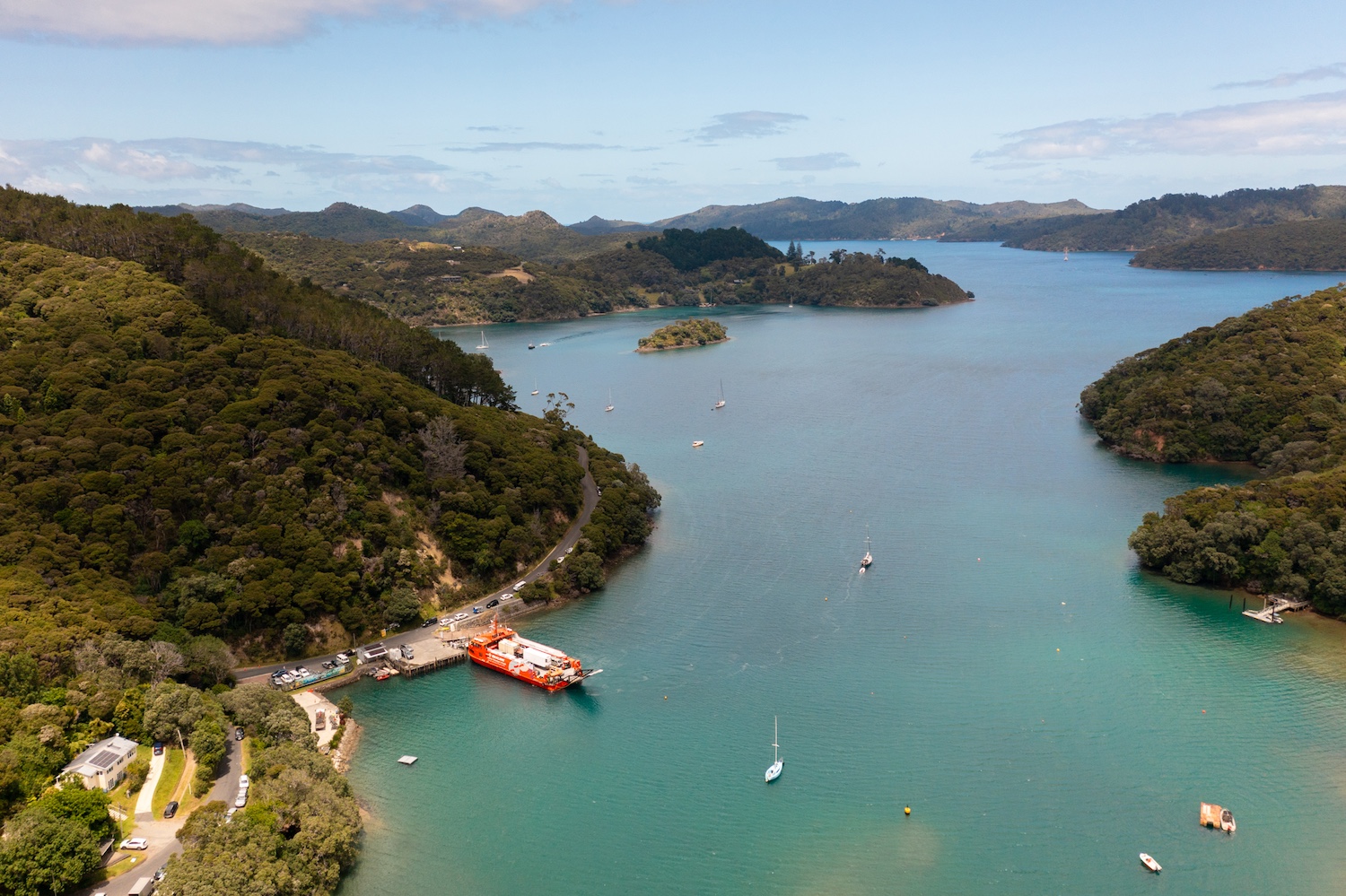
Great Barrier Island, like Waiheke, is exempt from certain service provisions under the Land Transport Management Act 2003, meaning Auckland Transport only manages the wharves, not the ferry services.
This exemption results in some SeaLink ferry services costing up to $600 for a single vehicle and driver, and up to $900 for a family of four, one way.
In 2021, the Waiheke Island local board successfully lobbied central government to consider removing its exemption status, leading to a 2022 report that labeled the exemption an ‘anomaly.’
The report said that integrating Waiheke into the public transport network would lower costs but cautioned it might increase visitor traffic to and from the island, potentially frustrating residents.
The then Labour government never got around to tackling the exemption status, but amid the controversy Auckland Transport inked a 12-year Quality Partnership Agreement (QPA) with Fullers360 in July 2022, which ultimately introduced the AT HOP Waiheke Monthly Pass, aligning fares with other outer harbour ferry services.
No such moves were enacted for Great Barrier Island’s SeaLink service.
Among the documents reviewed, there were around 12 instances of the Great Barrier local board advocating for an ‘on-demand, island-wide, low-carbon public transport service’ in the past decade.
These requests were rejected in July 2022, with Auckland Transport estimating the service would cost three-quarters of a million dollars in the first two years and likely be ineffective due to the island’s poor internet connectivity.
The 2014 board, did appear to be busy, lobbying unsuccessfully for Great Barrier Island to be included in the SuperGold free travel scheme for senior citizens. The request was denied due to a moratorium on new services entering the scheme at the time.
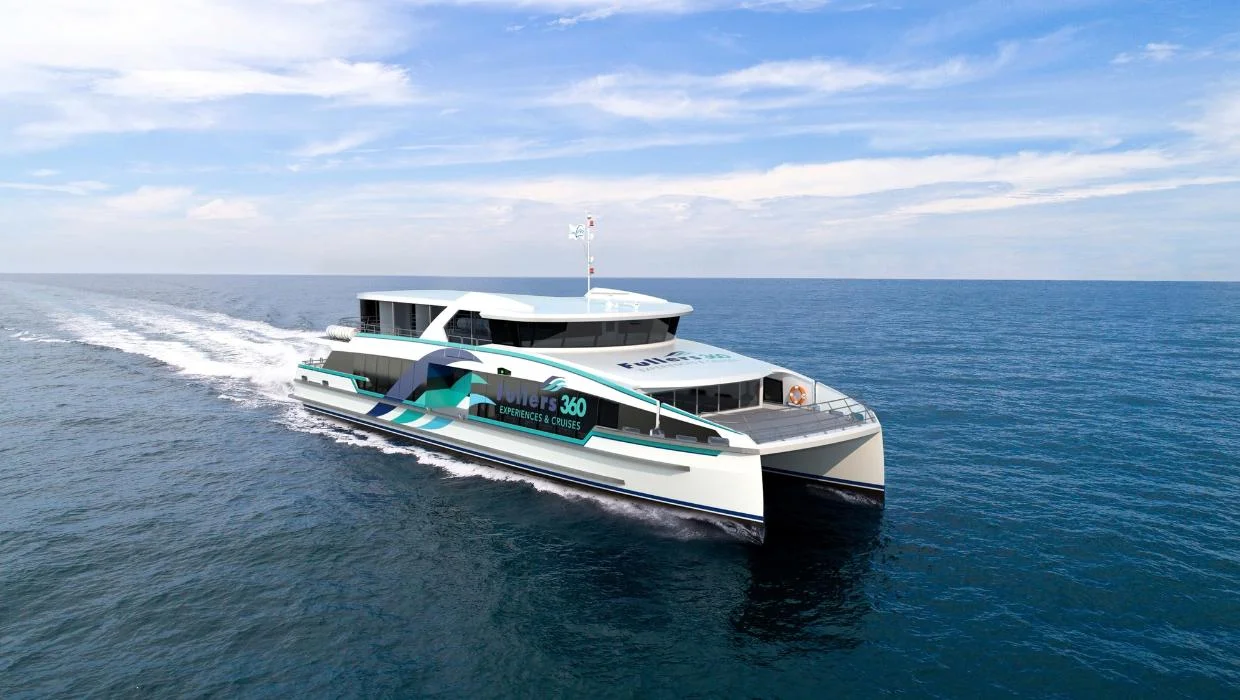
Recent advocacy efforts by the local board included opposing the cancellation of the Mulberry Grove school bus in 2021 and the imposition of the now-revoked regional fuel tax.
Other advocacy efforts included a plan to lobby for the modification of road culverts to ensure ‘fish migration is unhindered in our streams.’
A public 2023 document for ratepayers outlined the board’s intentions to lobby for freight subsidy options, but it appears no formal actions have been taken.
When approached by AoteaGBI.news for clarification on her statements, Fordham indicated that the approaches to MPs might have been more conversational than formal.
“Some of these conversations would have been verbal and not necessarily written or recorded.” she said
“We also have occasions when Local MPs and councillors come to visit and hold catchup meetings with constituents on a more one to one basis and I don’t know if those are recorded or not.”
“Other than that, sorry I can’t throw any more light on the subject.” Fordham added.
AoteaGBI.news reached out to MPs Chlöe Swarbrick and Simeon Brown for comment on receiving such requests, Swarbrick is yet to respond.



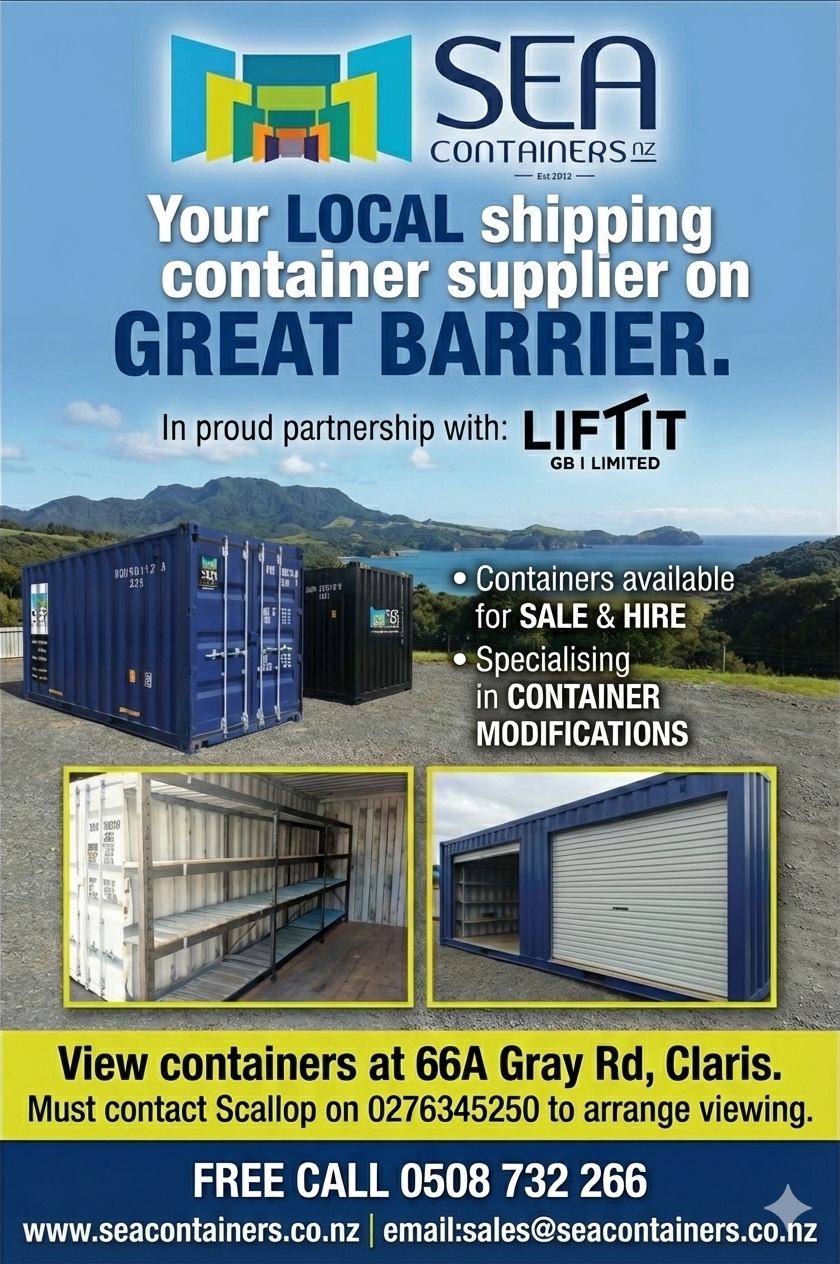
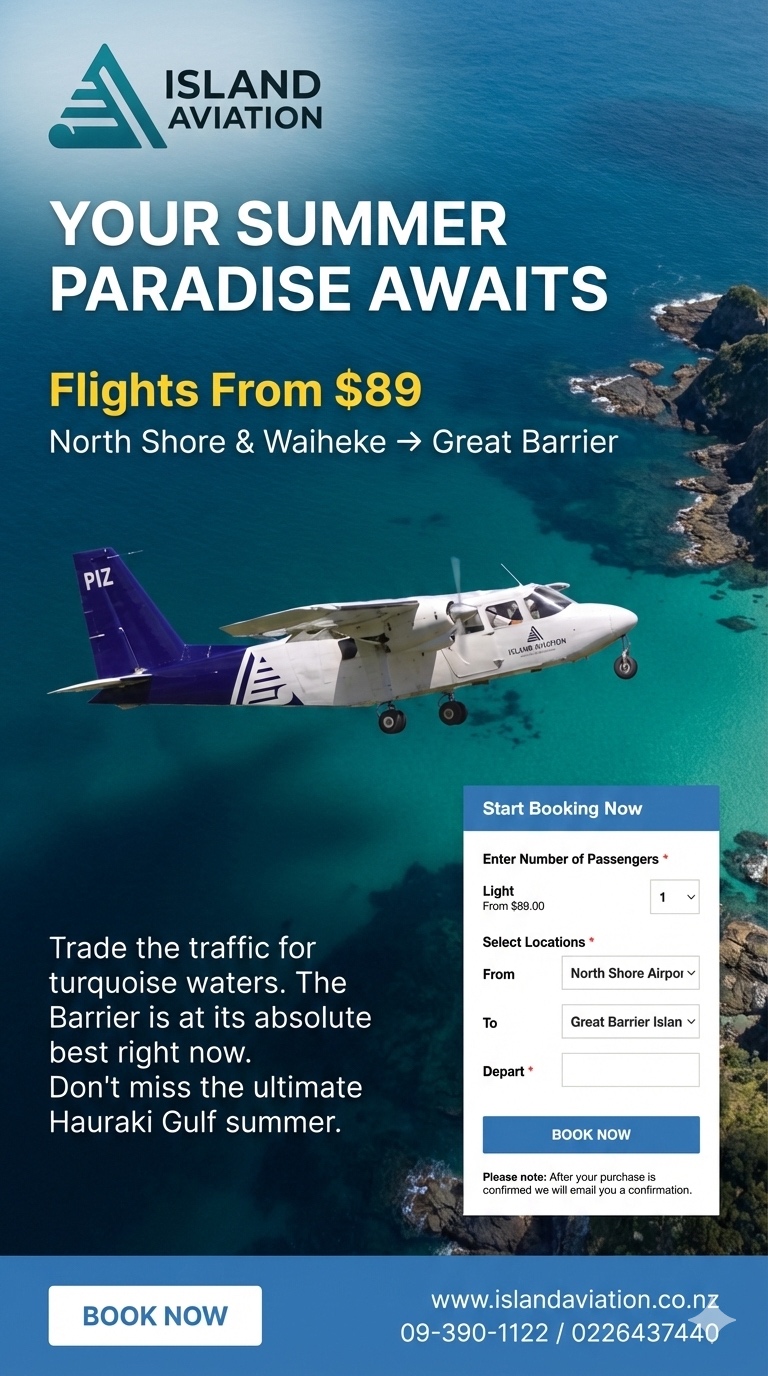
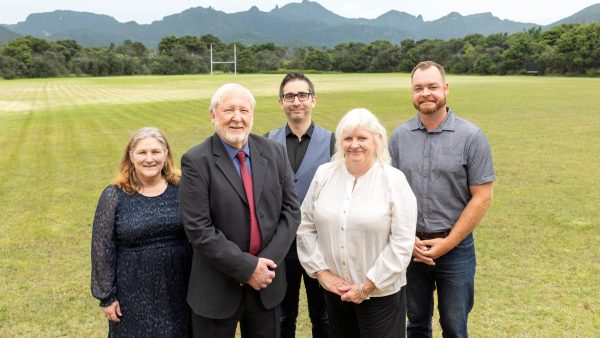
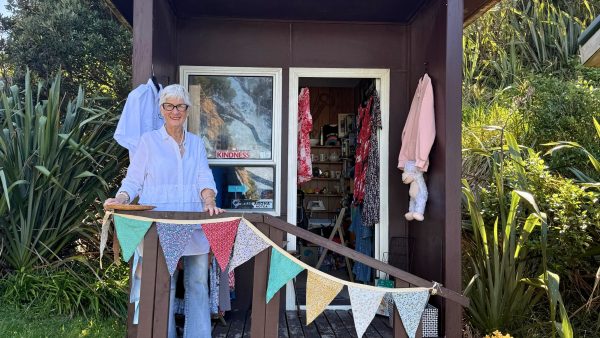
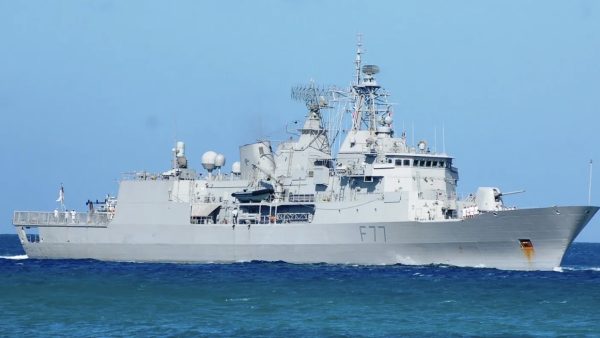
There is 1 comment
It seems the local board has been caught out. Nothing is in writing. Don’t hide behind conversations that may not have been recorded. You haven’t done your job! Servicing us locals…
Recently, I sought advice from one local board member over rising costs, escalating airfares, and sea travel. Cancelled ferry crossings due to operational mishaps, no one responsible for missing online shopping, and so forth. I was told it’s not the role of local board members to sort this. Surely, local board members represent us local residents. Why are there no regular meetings between service providers, the local board, Sea Link, Barrier Air, Countdown, MPs, etc.?
Surely one “official voice” is better to represent us. Their answer was that it’s not their role and they don’t see or want to call a public meeting to hear our concerns as it will turn out to be a bitch session. Really, is that what they think of us locals? Come on, local board, lobby for the people who voted you in. We are the joke of the Hauraki Gulf.
Comments are closed.